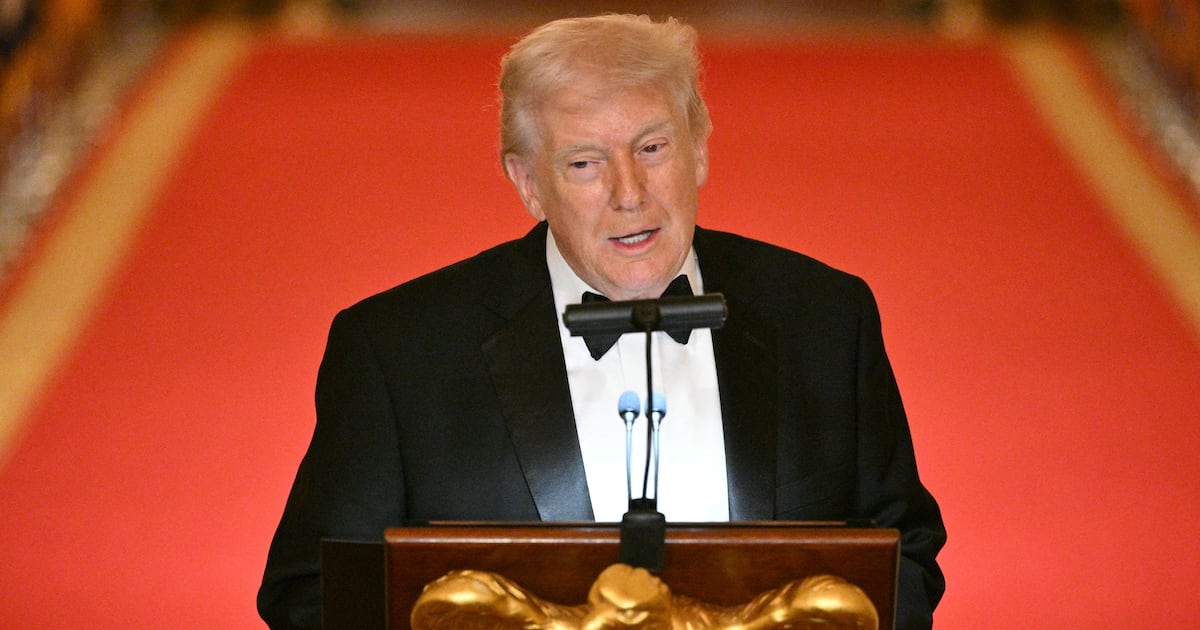LONDON—The epicenter of Britain’s radical centrist fightback can be found on the banks of the River Thames in the western suburbs of London.
It was drenched in sunshine this week; cosmopolitan locals basked at riverside bars, while well-off homeowners enjoyed tasting menus on elevated terraces.
There was little sign of revolution in the air.
South-West London has long been a stronghold for the Liberal Democrats—a party that has found some success as a centrist bulwark between Labour and the Conservatives. The local Lib Dem member of parliament was surprisingly ousted by the Conservatives at the election two years ago, but this community of affluent city workers, international business leaders and Britain’s landed classes voted overwhelmingly to reject Brexit last year.
If there was to be a powerful backlash against the populist movement that forced Britain out of the European Union, this was to be the starting point of the elite’s riposte.
There is no centrist, insurgent Emmanuel Macron figure in British politics, but Sir Vince Cable, the Lib Dem who lost here in Twickenham in 2015, ticks some of the same boxes—he too was an economist turned government minister who was celebrated more for his fiscal certitude and business-friendly instincts than for his party loyalty. In France, that economic literacy and independent spirit helped Macron win a handsome victory in the French presidential election.
Gina Miller, who became a cult hero for her legal fight against Brexit, has set up a cross-party action group to fight against British isolationism. Cable is one of the anti-Brexit politicians—from four different parties—that her organization is backing ahead of next week’s general election. The Best for Britain group is the most successful crowd-funded project in British political history—raising over $500,000 within weeks.
Miller told The Daily Beast that Cable, who served during the coalition government and became Britain’s longest serving Business Minister since the Second World War, was an “awesome” example of a powerful voice of the radical center.
“We need someone who has experience of government, a wise head, courage but also understands the economic implications of where we're going,” she said. “We do not have the right people in Parliament now—just cowards.”
The Liberal Democrats were all but wiped out at the 2015 election, after voters turned against them for compromises made during the Conservative-led coalition. Out of 650 members of Parliament, they won just 8 seats.
A year later, there was a shock vote to force Britain out of the European Union and Theresa May emerged as prime minister in the messy aftermath, adopting some of the inward-looking political attitudes of UKIP (the pro-Brexit, U.K. Independence Party).
For the first time in 20 years, Britain’s prime minister turned her back on the internationalist consensus that was embraced by Labour’s Tony Blair and then the Conservatives’ David Cameron and his chancellor George Osborne, who continued to champion the liberalizing effects of globalization.
In the aftermath of Brexit, Blair even returned to the spotlight to suggest that the result of the referendum could still be overturned. But with Jeremy Corbyn as the hard-Left leader of the Labour Party, the Conservatives’ main opposition is now also a throw-back to earlier decades of closed markets and government controls.
Officially, Corbyn campaigned against Brexit but he admitted that his heart was not in the European project and some Labour colleagues suspect he did all he could to sabotage the “Remain” campaign.
That essentially left the way clear at this election for the Liberal Democrats to capitalize on the 48 percent of British voters who rejected Brexit. They are offering the prospect of a second referendum if the terms of Britain’s negotiated exit from the E.U. prove too costly.
At the start of this snap election, which was called by May in April, there was an expectation that an anti-Brexit backlash would dramatically rehabilitate the Lib Dems—even though May was expected to win a convincing overall majority.
One of the first—and easiest—steps towards rehabilitation was expected to come here in South-West London, where Cable appeared in a public debate on Thursday evening.
“You've got a hard-Left Labour Party and you've got a very right wing Conservative Party following the agenda of UKIP,” Cable told The Daily Beast. “There is a lot of scope between the two, a lot of disillusioned European Conservatives, a lot of moderate Labour people—all of them looking for a home and potentially we can provide that.”
But he hardly sounded confident after five-weeks out campaigning among local voters. “We do represent the radical center, but we are going to have to win seats to achieve that,” he said.
In a seat that he was expected to re-gain comfortably, his team sounded a little downbeat—“cautious optimism is the official line,” said one aide skeptically, even though the latest polling suggested Cable might be ahead.
One of the pressing problems for Cable and his radical centrist colleagues was highlighted during the debate, when a member of the audience demanded to know: “What’s the point of anti-Brexit politicians now?”
In the aftermath of the referendum, stubborn Remain voters have been dubbed “Remoaners,” traitors or even “enemies of the people.” Gina Miller has been receiving a steady stream of death threats delivered online or in handwritten letters, and she fears that May and the aggressive Eurosceptic newspapers have stifled legitimate voices.
Cable refused to accept that it was now down to technocrats and centrists such as him and Macron—who saw off the threat of Marine Le Pen in France—as the last bastions against the advancing tides of Trump and Brexit-style populism.
“I don't think about ‘rabble hoards,’” he said. “I respect people's views regardless of their social class, their level of education, some of my closest supporters are not people from privileged background.”
Education was one of the clearest indicators of the way people voted in the referendum. The more educated you were, the more likely you were to vote to Remain in the E.U. But that divide is no longer showing up in the opinion polls ahead of next week’s vote. Younger voters (18-24) are overwhelmingly backing Corbyn’s radical Labour party—and the older you get the more likely you are to fall in behind Prime Minister May.
Instead of surging back into contention, the centrists—fronted by Lib Dem leader Tim Farron—have fallen away altogether. They could even lose one or two of their eight seats.
Anand Menon, the director of the U.K. in a Changing Europe Initiative, explained that a large proportion of the public had simply accepted that Britain was going to leave the European Union even if they personally thought it was a bad idea.
“Now you've got ‘Leave,’ ‘Remain,’ and the ‘Re-Leavers,’” he said. “The ‘Re-Leavers’ are people who voted to stay but now think we should leave because—let's face it—the country has voted.”
Menon added that the two main parties were managing to convince the electorate—temporarily—that they were relatively united and therefore avoided the “freak events” that paved the way for Macron to emerge from the center-ground in France. “This has become a very old fashioned election. All of a sudden this looks like a two-party system again,” he said.
The opinion polls suggest that the British electorate is willing to rally around the extremes. Either the most Left-wing manifesto in a generation or the party which has now gobbled up UKIP with its staunch support for Brexit—remember it was the Conservative titan Margaret Thatcher who signed Britain into Europe’s single market in the first place, and she was seldom described as a politician of the center-ground.
It must also be said that Farron has personally failed to convince the public that he is capable of leading a political rebirth.
In Twickenham, Cable, Miller and the centrists still have hope. A smattering of Lib Dem yard signs are testament to the embers of the radical center. One placard had been implanted into the hedge outside a beautiful ivy-covered house with a view over the Thames.
The Economist—a favored publication of the global elite—also leant its support to the flailing party on Thursday. “It is a dismal choice for this newspaper, which sees little evidence of our classical, free-market liberal values in either of the main parties,” its editorial ran. “So consider a vote for the Lib Dems as a down-payment for the future. Our hope is that they become one element of a party of the radical center, essential for a thriving, prosperous Britain.”
The owner of that placard, the house, and the convertible sports car out front is—like the editor of the Economist—far from a typical voter.
Cable may win back his seat and re-enter Parliament as a respected statesman, but he is likely to have few party colleagues in the chamber. Outside of this elite suburban enclave the anti-Brexit message is failing to excite voters.
This time round, at least.
Gina Miller held discussions with Macron’s newly formed En Marche political party for advice on how to run her radical centrist campaign at this election, and she has been inspired to consider the possibility of a new party in time for the elections due in 2022.
“There is a vacuum in the center, if the Conservative Party is going more to the right and the Labour Party is going more to the Left, and the Lib Dems are not cutting through in the center, then there may well be a space for a party such as En Marche in the U.K.,” she said.
Miller, who said she was approached by people exploring the possibility of a new party, said it might be more successful if the new party’s leadership was drawn from figures outside of politics.
So not Tony Blair and George Osborne then? “No, definitely not!” she smiled. If the radical center is to succeed in Britain, a fresh generation of politicians must use the chaos of Brexit to raise their voices.






